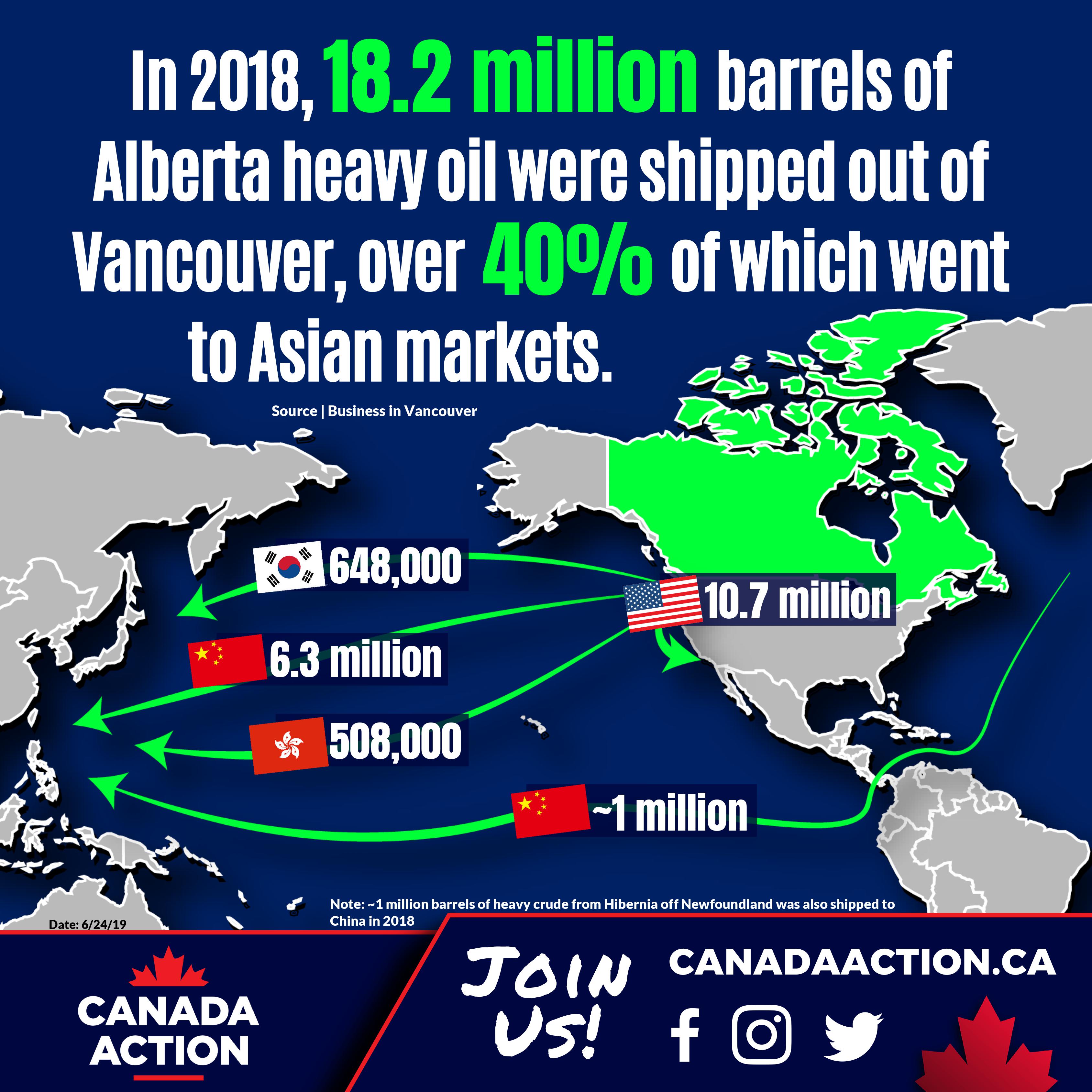China's Oil Diversification Strategy: A Focus On Canada

Table of Contents
Geopolitical Drivers Behind China's Oil Diversification
China's concerns regarding Middle Eastern instability are well-documented. The region's history of political upheaval, conflict, and sanctions poses a significant risk to the consistent supply of oil, a critical resource for China's booming economy and its ambitious infrastructure projects. To reduce this vulnerability, China actively seeks to diversify its oil import sources, ensuring a reliable and stable energy supply regardless of geopolitical fluctuations in any single region. This diversification strategy is not merely about securing supply; it's also about reducing geopolitical risk and enhancing China's global influence.
- Reduced geopolitical risk: Diversifying oil sources minimizes dependence on any single nation or region, reducing vulnerability to political instability or sanctions.
- Mitigation of supply chain disruptions: By sourcing oil from multiple countries, China can mitigate potential disruptions caused by conflicts, natural disasters, or political tensions in a specific region. This ensures a more resilient energy supply chain.
- Strengthening diplomatic ties: Developing strong energy partnerships with countries like Canada fosters diplomatic relations, strengthening bilateral ties and promoting mutual economic benefit.
- Access to high-quality crude oil: Canada offers high-quality crude oil, particularly from its oil sands, which is suitable for Chinese refineries and processing needs. This compatibility adds to the strategic appeal of Canadian oil for China.
Canada's Role as a Key Oil Supplier for China
Canada possesses vast oil sands reserves, representing one of the world's largest crude oil deposits. These reserves offer significant potential to meet China's growing energy demands, making Canada an attractive and increasingly important partner for China in the global energy market.
- Abundance of oil sands: Canada's oil sands are a significant source of crude oil for the global market, providing a substantial supply to meet international demand, including that of China.
- Canadian regulatory framework: Canada provides a transparent and relatively stable investment environment, attractive to foreign investors like Chinese energy companies seeking long-term partnerships.
- Proximity and transportation infrastructure: Although geographically distant, improving transportation infrastructure, including pipelines and shipping routes, facilitates more efficient oil delivery to China.
- Potential for long-term strategic partnerships: The potential exists for significant long-term strategic partnerships between Canadian and Chinese energy companies, leading to increased investments and collaborative projects in oil exploration, production, and transportation.
The Trans-Pacific Partnership and its Impact
Trade agreements play a vital role in shaping energy trade relationships. While Canada and China were not always participants in the same comprehensive trade agreements, the potential impact of future agreements on their oil trade is significant. For instance, reduced tariffs and streamlined customs procedures would further facilitate the flow of Canadian oil to China.
- Reduced tariffs and trade barriers: Trade agreements can significantly reduce or eliminate tariffs and other trade barriers, lowering the cost of importing Canadian oil into China.
- Enhanced investment protection: Agreements often include provisions for enhanced investment protection and dispute resolution mechanisms, providing a more secure environment for Chinese investments in Canadian energy projects.
- Streamlined customs procedures: Improved customs procedures and increased transparency can expedite the import and export processes, improving efficiency and reducing transaction costs.
- Potential for increased bilateral trade: Stronger trade agreements can create a more favorable environment for broader bilateral trade and economic cooperation beyond the energy sector.
Challenges and Hurdles in the China-Canada Oil Relationship
Despite the potential benefits, the China-Canada oil relationship faces several challenges. Environmental concerns surrounding oil sands extraction and transportation are prominent, as are potential political and economic obstacles.
- Environmental impact of oil sands development: Oil sands extraction has significant environmental impacts, including greenhouse gas emissions and habitat disruption. This raises concerns among environmental groups and international bodies.
- International pressure regarding climate change commitments: Growing global pressure to reduce carbon emissions and address climate change could influence policies impacting oil sands development and transportation, potentially impacting trade between Canada and China.
- Geopolitical tensions: Fluctuations in broader geopolitical relations between Canada and China could indirectly affect the energy relationship, creating uncertainty for investors and hindering trade.
- Navigating complex regulatory frameworks: Both countries have complex regulatory frameworks governing energy production, transportation, and investment, requiring careful navigation to ensure compliance and smooth trade.
Future Prospects and Potential for Growth
The future prospects for the China-Canada oil relationship depend on several factors. China's oil demand is projected to remain strong, and Canada's capacity to meet that demand will be a key determinant of the relationship's future trajectory.
- Increased investments: We can expect increased investments in Canadian oil sands projects by Chinese companies, driven by China's energy security needs and Canada's resource potential.
- Technological innovation: The development of innovative technologies aimed at reducing the environmental impact of oil production and transportation will be crucial for mitigating concerns and sustaining long-term growth.
- Strengthened diplomatic ties: Continued strengthening of diplomatic ties and collaborative efforts on energy security issues between the two countries will enhance the stability and sustainability of their energy partnership.
- Exploration of alternative energy cooperation: Expanding cooperation beyond fossil fuels to explore alternative energy sources, like renewable energy technologies, could add another layer to the bilateral energy relationship.
Conclusion
China's oil diversification strategy is a crucial aspect of its national security and economic development. Canada, with its vast oil reserves and comparatively stable political climate, has emerged as a significant partner in this strategy. However, the relationship is not without its challenges, demanding careful consideration of environmental impacts and geopolitical complexities.
Understanding the nuances of China's oil diversification strategy and Canada's crucial role is critical for both domestic and international players in the energy sector. Further research into the ongoing developments and potential future scenarios within this evolving relationship is essential. Stay informed about the latest developments in China's oil diversification strategy and its impact on global energy markets.

Featured Posts
-
 Brewers Shatter 33 Year Old Record With Nine Stolen Bases
Apr 23, 2025
Brewers Shatter 33 Year Old Record With Nine Stolen Bases
Apr 23, 2025 -
 Tigers Drop Series Finale To Brewers Keider Monteros Performance
Apr 23, 2025
Tigers Drop Series Finale To Brewers Keider Monteros Performance
Apr 23, 2025 -
 Brewers Fall To Giants Flores And Lee Lead The Charge
Apr 23, 2025
Brewers Fall To Giants Flores And Lee Lead The Charge
Apr 23, 2025 -
 Kollektsiya Mercha Pavla Pivovarova S Aleksandrom Ovechkinym Podrobnosti
Apr 23, 2025
Kollektsiya Mercha Pavla Pivovarova S Aleksandrom Ovechkinym Podrobnosti
Apr 23, 2025 -
 Pentrich Brewing Factory History Beers And Tours
Apr 23, 2025
Pentrich Brewing Factory History Beers And Tours
Apr 23, 2025
